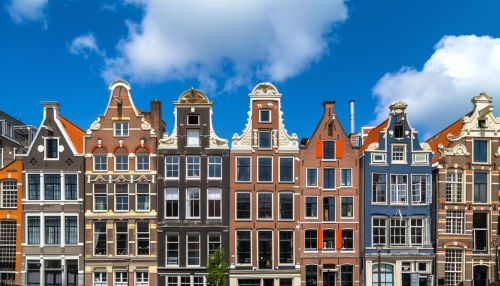Economy of Amsterdam
Economy of Amsterdam
Amsterdam, the capital city of the Netherlands, has a diverse and vibrant economy. The city's economy is known for its historical significance in trade and commerce, and it continues to be a major center for international business and finance today.
Historical Overview
Amsterdam's economic history dates back to the 13th century when it was a small fishing village. The city's strategic location along the river Amstel and its proximity to the North Sea made it an ideal location for trade. In the 17th century, also known as the Dutch Golden Age, Amsterdam became one of the most important trading centers in the world. The establishment of the Amsterdam Stock Exchange in 1602, the world's first stock exchange, marked the city's emergence as a leading financial center.


Sectors
Amsterdam's economy is diverse, with several key sectors contributing to its economic output. These include finance, creative industries, life sciences and health, ICT, tourism, and trade.
Finance
Amsterdam is home to the Euronext Amsterdam, formerly known as the Amsterdam Stock Exchange, which is the largest stock exchange in the Netherlands. The city is also the European headquarters of many international banks and insurance companies. The financial sector plays a significant role in Amsterdam's economy, contributing to its high GDP per capita.
Creative Industries
Amsterdam is a hub for creative industries, including advertising, fashion, design, and digital media. The city's vibrant cultural scene, coupled with its strong digital infrastructure, makes it an attractive location for creative businesses.
Life Sciences and Health
Amsterdam is a leading center for life sciences and health, with a focus on medical research and biotechnology. The city is home to several world-class research institutions and hospitals, including the Amsterdam UMC, a collaboration between the University of Amsterdam and VU Medical Center.
ICT
The ICT sector in Amsterdam is thriving, with a strong focus on data centers, cybersecurity, and e-commerce. The city's digital infrastructure, including the Amsterdam Internet Exchange, one of the world's largest data transport hubs, supports the growth of this sector.
Tourism
Tourism is a significant part of Amsterdam's economy. The city's rich history, cultural attractions, and vibrant nightlife attract millions of visitors each year. The tourism sector contributes to the city's economy through direct spending by tourists and the creation of jobs in the hospitality industry.
Trade
Amsterdam's strategic location and excellent transport links make it a major hub for international trade. The Port of Amsterdam is the second-largest port in the Netherlands, handling millions of tonnes of cargo each year.


Economic Policies
Amsterdam's economic policies are designed to promote growth, innovation, and sustainability. The city's economic development strategy focuses on attracting international businesses, supporting startups and scale-ups, and promoting sustainable business practices.
Challenges
Despite its strong economy, Amsterdam faces several challenges, including housing affordability, congestion, and sustainability. The city's government is working to address these issues through various initiatives and policies.
Future Prospects
Amsterdam's economy is expected to continue growing in the future, driven by its strong sectors, strategic location, and innovative economic policies. The city's focus on sustainability and digital innovation also positions it well for future economic trends.
